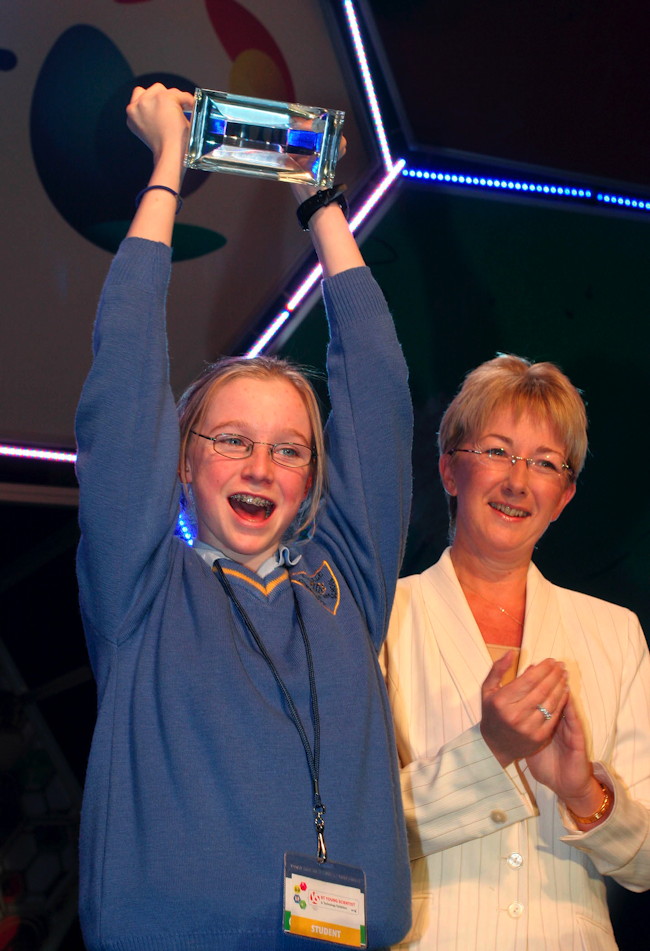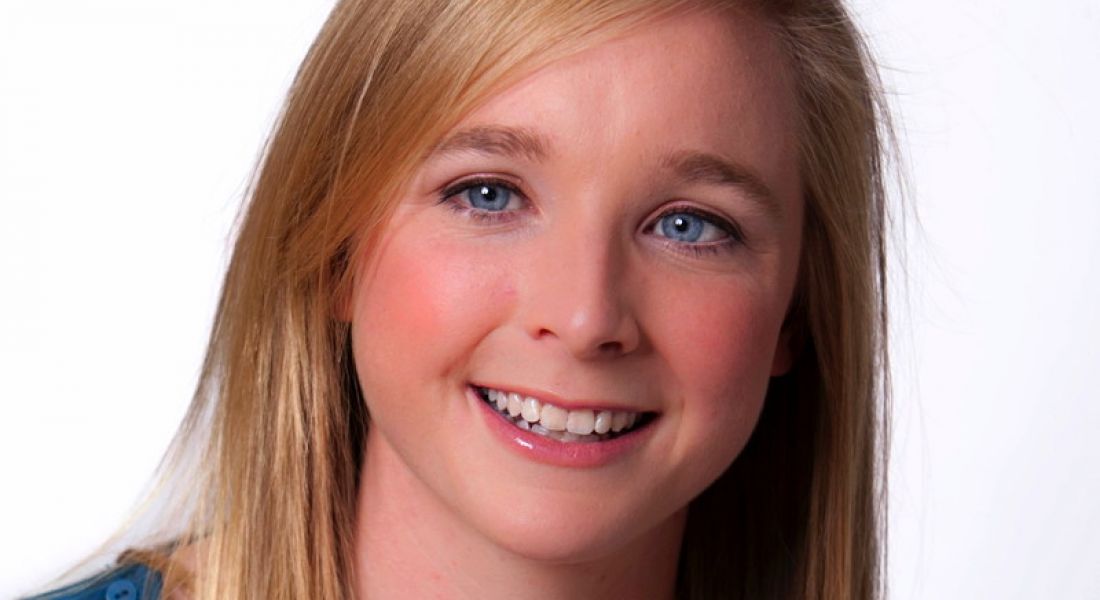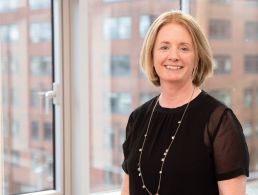Former BT Young Scientist & Technology Exhibition winner Aisling Judge believes we need a change of gear when promoting women in STEM to school students.
When it comes to being an ambassador for women in science, technology, engineering and maths (STEM), Aisling started earlier than most. In 2006, aged just 14, she won the overall prize in Ireland’s BT Young Scientist & Technology Exhibition for her work on a biological food spoilage indicator. She was the first female to win the top prize in seven years, though she wasn’t the first in the audience to know it.
“I honestly had no idea that I was going to win,” recalls Aisling of that day nine years ago. “And I missed them announcing my name because I was chatting to my friend.”
When she realised she had won and went on stage, it was the start of a media storm about the young scientist from Kinsale Community School in Kinsale, Co Cork, who had developed a system to detect food spoilage.
“I was young, bubbly and a girl and I was anti the stereotype,” recalls Aisling. “It did blow up for awhile but it was brilliant, I got opportunities to meet people and talk at events.”
BT Young Scientist family tradition
Today the Judge name is well known in ‘Young Scientist’ circles. Not only did Aisling win in 2006, but her younger sister Ciara won with teammates Émer Hickey and Sophie Healy-Thow in 2013, and while Aisling was still at primary school her older brother Edward was a keen participant, winning a category prize.
Yet despite her older brother’s interest, Aisling didn’t see science in her future.
“I was always good in school and I quite liked maths and I would have read books but I was never studious and I was certainly not interested in science,” she says.
“The first year my brother entered, I refused to come up (to Dublin) and the second year he was in it my Mum bribed me – she brought my best friend and said we could go to Funderland. She said to me ‘You have to come’ and I said ‘That’s fine, I will go but I hope you don’t ever expect me to do that science thing.’”
That all changed when Aisling got to the RDS. She was blown away, not only by the projects but by the fun events (Robot Wars, anyone?) and the buzz: “I was hooked,” she says.
The first year she entered, she won a prize in her category and in her second year she scooped the big title, going on to win third place in the European Union Contest for Young Scientists with her project.
“People ask me if winning the BT Young Scientist & Technology Exhibition changed my life and I say winning has given me a platform, but participating in the BT Young Scientist & Technology Exhibition changed my life,” says Judge.

Kinsale Community School student Aisling Judge accepts her award for winning the overall prize at the BT Young Scientist & Technology Exhibition for her project on a biological food spoilage indicator at the RDS in Dublin in 2006, alongside Mary Hanafin, TD, then-Minister for Education and Science. Photo by Shane O’Neill, Fennell Photography
The importance of communication skills
After getting back to doing her Junior and Leaving Certificates, Aisling studied chemical engineering at University College Dublin and she is now completing a master’s degree in biochemical engineering at University College London.
But she still helps students from her school in Kinsale prepare to take part in the BT Young Scientist & Technology Exhibition, and she believes that the winning mix is a ratio of “10pc luck, 60pc hard work and 30pc communication”.
The communication skills are particularly valuable to cultivate – not just for explaining your project to judges, the media and the public in the RDS, but for the future, too. “Whether you are working in science or otherwise, in industry or academia, you need to be able to communicate ideas,” Aisling says.
Promoting women in STEM
Last week at the RDS, Aisling helped look after the tens of students from Kinsale Community School who were presenting their BT Young Scientist & Technology Exhibition projects, and she believes that in order to encourage more girls to get involved in STEM, the messages need to be more nuanced.
“At a corporate level the message needs to be pushed to keep it prioritised, but I think pushing this ‘we need more girls to do STEM’ in the students’ faces is counterproductive,” she says.
“It can be as if you are being targeted in an ad campaign and that puts you off. Also, when you are going into university it’s a big change and you are asking yourself whether you will be able to make friends easily. If you are hearing ‘we need more girls to do STEM because there are not enough’, then you may think ‘how many girls will be in my class?’”
Instead, Aisling is in favour of more subtly introducing role models, giving more female scientists, mathematicians and engineers time in the media and having them visit schools.
“If a female software engineer visits a transition-year class, it won’t put the boys off doing software engineering, and if one girl in that class is later considering computer science or engineering they will think back to that visit. We have made massive progress in promoting women in STEM, the first push makes that progress, but now it is going to be slower and we need to be a bit more patient.”
Bright future
Aisling’s own plans include working in the biopharmaceutical industry and she wants to return to Ireland at some point.
“I am a home bird and I am proud of Ireland,” she says. “We can be a bit hard on ourselves, but I think we have a pretty good set-up for a lot of things.”
Women Invent Tomorrow is Silicon Republic’s campaign to champion the role of women in science, technology, engineering and maths. It has been running since March 2013, and is kindly supported by Accenture Ireland, Intel, the Irish Research Council, ESB, Twitter, CoderDojo and Science Foundation Ireland.
Inspire 2015 is Silicon Republic’s international event running 18-19 June in Dublin that connects sci-tech professionals passionate about the future of STEM with fresh perspectives on leadership, innovation and diversity.




